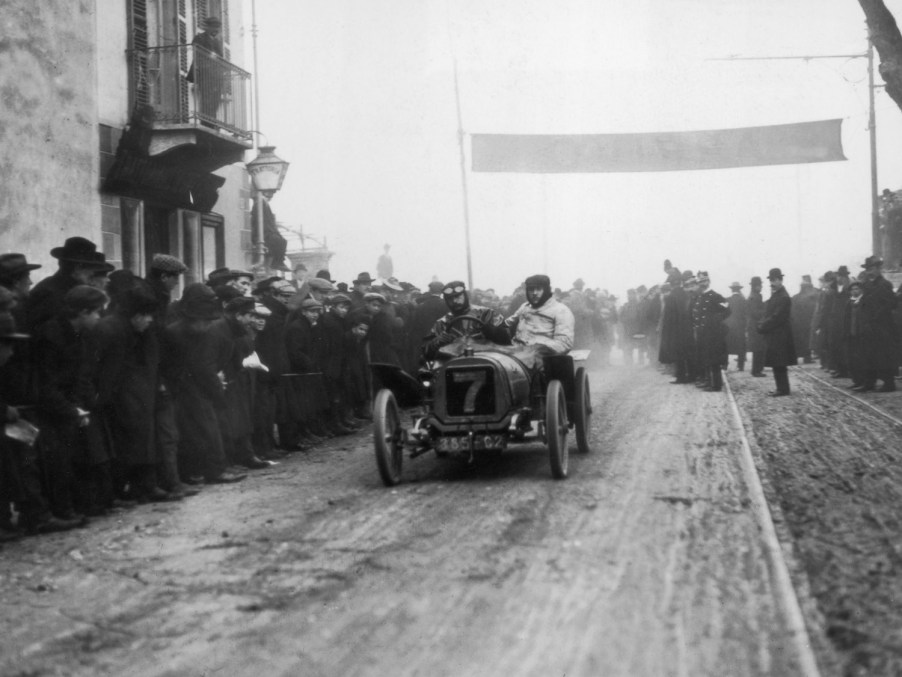
Which Car Brand Won the First Race?
The first known auto racing event in the world was the 1894 Paris-Rouen race. Albert Lemaître won the internal combustion class, finishing the 78-mile course in just 6 hours and 51 minutes in his 3-horsepower Peugeot.
What is the world’s oldest car company?
Many car companies claim some historic firsts. But the first gasoline-powered combustion car was Karl Benz‘s 1885 Motorwagen. This technology caught the attention of Armand Peugeot, who launched his own car in 1890 with a Daimler-designed engine.

By 1890, Armand Peugeot had already dabbled with steam automobiles, offering a short-lived tricycle. Throughout the 1890s, the company would continue to evolve its automobile design. It was the first brand to fit rubber tires. These sturdy early units were solid, not air-filled.
What was the first automobile race?
Though people probably raced their cars unofficially as long as they were experimenting with cars, the first official automobile race was the 1894 Paris-Rouen race organized by Le Petit Journal newspaper.

The race was not a single event but the headliner of a four-day automobile festival. It included eight separate qualifying races around Paris, which all drew crowds.
One unique entrant was the Count of de Dion. This automobile pioneer invented his very own steam vehicle. He was allowed to enter the main race and even crossed the finish line first, with a time of 6 hours and 48 minutes. But as the rules called for an internal combustion engine, he was disqualified from winning.
Peugeot was the dominant marque in the first motor race. Five drivers in Peugeot cars qualified for the event, and the winner drove a Peugeot.
The inaugural Paris-Rouen race was also the first known use of air-filled tires, also pioneered by Peugeot. But the technology was developing, and the Peugeot drivers suffered multiple flats.
The cars were otherwise far from modern: they were very much horseless carriages, all of them even steered with a rudder.
Did Peugeot win many early races?
Peugeot was a pioneer of auto racing. Thanks to an innovative engine, this marque won the 1912 Grand Prix. The same Peugeot model went on to win the 1913 French Grand Prix and the Indianapolis 500.

One of the ways Peugeot made some of the quickest early race cars was by enlisting its drivers–namely Paul Zuccarelli and Georges Boillot–to guide engineer Ernest Henry in designing a new race engine.
This team tossed the regular strategy: use huge displacement to make power. Instead, they pursued a fast-spinning engine. To this end, they pioneered four valves per cylinder and built the world’s first double overhead camshaft (DOHC) engine. This little four-cylinder was the racing engine to beat for the next two seasons.
Next, read about the first car ever made or see it in action for yourself in the video below:



